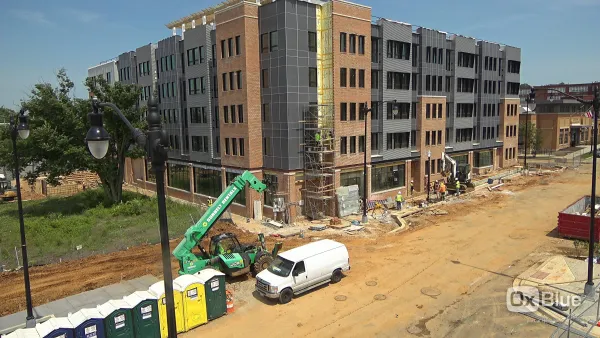In an interview with the British inventor James Dyson, Ben Schiller discusses the future of engineering and design in America and the fallacies behind much "green" design.
James Dyson has a few ideas about the relationship between engineering and efficiency, and rightly so – over the past twenty years, his company has garnered international attention for a small collection of products built on highly innovative designs.
For one, he sees serious problems with academic trends in the West, claiming that American universities produce nine times as many lawyers as engineers. "Other nations have lower manufacturing costs, and generally lower expectations of profit," he explains. "They can make me-too products much more cheaply than we can. So, we've got to produce products with better design and technology."
Moreover, Dyson calls out superficial attitudes about green design as "lazy engineering": "People install a small motor and say, 'This is green, it's good for the environment.'... But that's just a cheap marketing trick. It's not answering the real problem..."
As Schiller suggests, we don't "need a design revolution if we want to cut energy use and conserve scarce materials. We just need to go back to making durable products, and get people interested in engineering again. The rest should take care of itself."
FULL STORY: James Dyson on the Lazy Engineering behind Fake Energy Efficiency

Planetizen Federal Action Tracker
A weekly monitor of how Trump’s orders and actions are impacting planners and planning in America.

Map: Where Senate Republicans Want to Sell Your Public Lands
For public land advocates, the Senate Republicans’ proposal to sell millions of acres of public land in the West is “the biggest fight of their careers.”

Restaurant Patios Were a Pandemic Win — Why Were They so Hard to Keep?
Social distancing requirements and changes in travel patterns prompted cities to pilot new uses for street and sidewalk space. Then it got complicated.

Platform Pilsner: Vancouver Transit Agency Releases... a Beer?
TransLink will receive a portion of every sale of the four-pack.

Toronto Weighs Cheaper Transit, Parking Hikes for Major Events
Special event rates would take effect during large festivals, sports games and concerts to ‘discourage driving, manage congestion and free up space for transit.”

Berlin to Consider Car-Free Zone Larger Than Manhattan
The area bound by the 22-mile Ringbahn would still allow 12 uses of a private automobile per year per person, and several other exemptions.
Urban Design for Planners 1: Software Tools
This six-course series explores essential urban design concepts using open source software and equips planners with the tools they need to participate fully in the urban design process.
Planning for Universal Design
Learn the tools for implementing Universal Design in planning regulations.
Heyer Gruel & Associates PA
JM Goldson LLC
Custer County Colorado
City of Camden Redevelopment Agency
City of Astoria
Transportation Research & Education Center (TREC) at Portland State University
Camden Redevelopment Agency
City of Claremont
Municipality of Princeton (NJ)





























